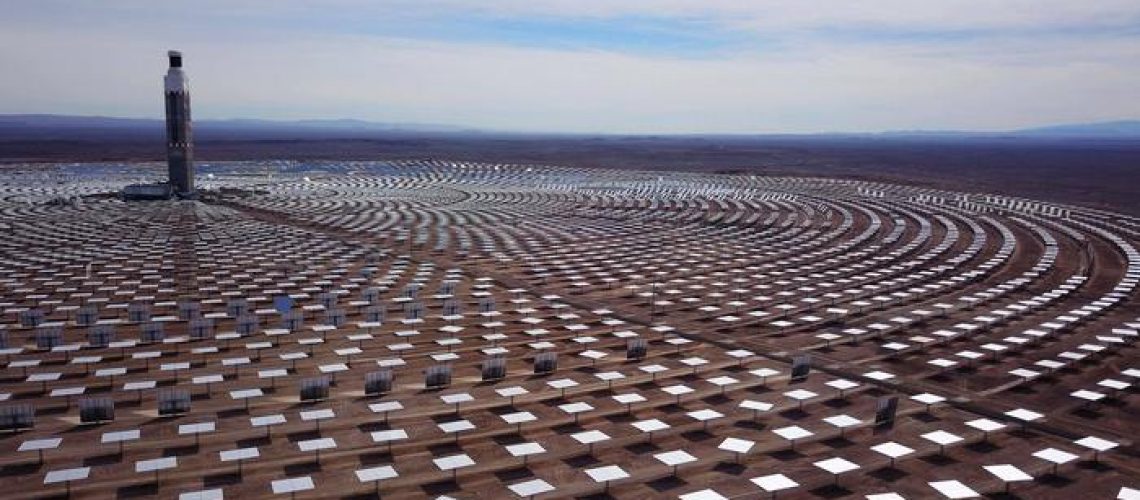With a tour of the European Southern Observatory (ESO) at Cerro Paranal and at the Cerro Dominador Solar Power Plant, concludes the visit to Chile by Josep Borrell, High Representative for Foreign and Security Policy of the European Union. In his meetings with President Gabriel Boric, with ministers, specialists from the Economic Commission for Latin America (ECLAC), professors and students, he has made clear the EU’s will and interest in deepening relations with the southern country. How? Firstly, by accelerating the modernization of the Association Agreement, which has existed between the EU and Chile since 2002.
Timing is key: Europe is facing the effects of Russia’s war against Ukraine and is suffering the consequences of its dependence on Russian gas; For its part, Chile is committed to renewable energies and has the natural resources necessary for green technologies.
Josep Borrell, High Representative for EU Foreign Policy and Gabril Boric, President of Chile, Santiago, 04.27.2022
Key moment
“We must take advantage of this historical experience to speed up the energy transition,” said Borrel, stressing that, like never before, geopolitics and the fight against climate change go hand in hand. And European companies are preparing to take advantage of the advantages offered by the sun. , the winds and the great maritime platform of the country; some seven billion euros would already be ready to be invested in renewables, such as green hydrogen. What is missing? Conclude the modernization of that agreement.
“I always say that it is a new agreement, because it is very ambitious,” Inmaculada Rodríguez-Piñero, president of the Delegation for relations with Chile, explains to DW. “It includes a chapter on energy, which is a clear joint commitment to the development of renewable energies and hydrogen technology. Regarding innovation and cooperation, it is aimed at the digital and green transition, which helps stimulate investment. It also incorporates a chapter for small and medium-sized companies, essential to facilitate our investment in Chile”, she adds, stressing that their protection also improves with the new text.
The new agreement with Chile began to be negotiated in 2017 and, basically, it is stitched together. However, “Chileans were at the gates of elections when the technical negotiations were concluded. The reasonable thing was to wait for the Chilean people to choose their new representatives and close the process with them,” adds Rodríguez-Piñero, who was a rapporteur for a report of the European Parliament for the modernization and extension of the commercial pillar of the Association Agreement with Chile.
In any case, during Josep Borrell’s visit it became clear that there is also a will in Santiago to soon sign this agreement, which would also facilitate technological cooperation. However, first they want to review it because the current government did not participate in the negotiations and needs to assess whether there are points to expand or new aspects to introduce. A visit by the International Trade Committee of the European Parliament is scheduled for the end of May; greater clarity is expected from it as to what remains to be done.
European Southern Observatory (ESO), Antofagasta Chile
In capsizing, reliable partners
Is it perhaps the property of the natural resources to be exploited? “In the agreement as it is now, the issue of ownership is not addressed so much as access to them. It is important that there is no discrimination between national and foreign investors in access to the mines,” explains Rodríguez-Piñero. “A Unlike China, which buys lithium mines, for example, we do not propose their sale, but we do propose that there be openness to fundamental investments for the development of renewable energies and digitization, subject to the rules of international trade”, he points out. .
Thus, in Santiago it was set as a horizon that the signing would be for when the original agreement was twenty years old. That is, in 2022. Why the rush? “We have seen the ears of the wolf, we have war at the gates of the EU,” explains Rodríguez-Piñero. “Agreements are a fundamental instrument in foreign policy to strengthen economic and commercial relations. And not only that; in a time of anxiety, the signal we send to the world is important: we need reliable partners. And Chile, without a doubt, is”, he concludes.

